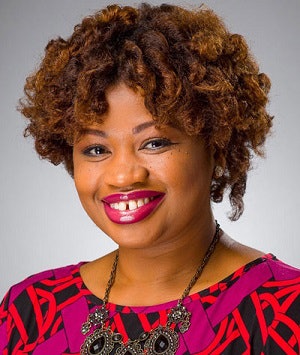We have now entered what I and many other scholars of color call, “The High Season.” It’s that period between Martin Luther King Day, Black History Month and Women’s History Month when we are regularly called upon to lend our scholarly expertise to elementary schools programs, university symposia and community banquets.
The High Season has taken me to myriad places like Claflin University for freshman convocation; Oxford University for a political science colloquium; Springfield, Illinois for the Annual Frontiers Breakfast; and Google Headquarters for a conversation about diversity and tech. For the last fifty years my adopted New Haven community has held an Annual Dr. Martin Luther King Day conference that attracts over 500 people. I love the High Season and I am always humbled when people invite me. Having the opportunity to travel and share my work is a welcome respite from spaces where I often feel my very existence as a scholar of color is challenged. Please keep the invitations coming especially if the location is somewhere warm and sunny.
But, Dr. King deserves more than just annual celebrations. His memory deserves a full time commitment to eradicating poverty, abuses of power, sexism, militarism and yes, racism. King deserves more than the masses among us who have romanticized the Civil Rights Movement. The revisionist narrative is that everyone shared his vision and believed in his lifeswork. The reality, however, is that during his life King was viewed as a troublemaker who jeopardized the lives of others just to prove a selfish point. It was only at his death that this country began to appreciate his commitment to reducing the gap between the principle and the practice of inclusion for all Americans. King worked to affirm the humanity of all people even as he began to question America’s commitment to democracy. Dr. King deserves more.
 Dr. Khalilah L. Brown-Dean
Dr. Khalilah L. Brown-DeanFor some, celebrating the birth of Dr. King is an occasion for us to hold hands and sing “We Shall Overcome”. To others, it’s a time to reflect on the tremendous accomplishments that have been made in the area of race relations. The 2018 Midterms led to the most diverse Congress in history with more women, African-Americans, Latinx and Asian American members in addition to greater religious pluralism. Members like Lauren Underwood prove that the voices of young people are essential to mutual progress, while Lucy McBath’s historic win in Georgia gives us hope that perhaps principles trump partisanship. Indeed, much progress has been made and we must always take the time to celebrate our accomplishments. But Dr. King deserves more.
King deserves more than people who take his name out of context to justify policies and political positions that run antithetical to the very things he fought for. Last week Vice President Mike Pence used a line from Dr. King’s iconic “I Have a Dream Speech”, “now is the time to make real the promises of democracy,” to justify the President’s demand for building a border wall. In spite of White House Press Secretary Sarah Huckabee Sanders’ tweet, King didn’t give his life for racial equality. He lost it for demanding America live up to her promise.
The “I Have a Dream Speech” was given at the 1963 March on Washington for Jobs and Freedom because King and his fellow organizers understood that being able to work is a badge of dignity and essential to protecting freedom. For thirty-five days that freedom was imperiled for thousands of families who grew up believing that getting a “good government job” would provide economic security. The longest government shutdown in U.S. history is temporarily coming to an end. For far too many families, however, the damage will be permanent.
If the only thing you know about Dr. King is that he had a dream, then you don’t really know Dr. King. You don’t know of his fear that the dream he espoused at the Lincoln Memorial had turned into a nightmare by 1967 when he penned “Beyond Vietnam: A Time to Break Silence.” King believed that our silence toward suffering is in and of itself an act of betrayal. As he approached the end of his life in 1968, he realized that just dreaming isn’t enough. Dreams require voice and action; coordinated action that engages our families, our neighbors, our community leaders, our houses of worship, our schools, and our government to help build the Beloved Community.
The late Coretta Scott King reminds us that “in the Beloved Community, the values of caring and compassion will drive policy toward the world-wide elimination of poverty and hunger; racism, and all forms of bigotry and violence. The Beloved Community transcends all boundaries and barriers and embraces all creation.” As scholars who will be called upon during this the “High Season,” let’s continue to affirm what Dr. King deserves by building community one speech at a time.
Dr. Khalilah L. Brown-Dean is an associate professor of Political Science at Quinnipiac University where she writes about American Politics, political psychology, and public policy. You can follow her on Twitter @KBDPHD.



















